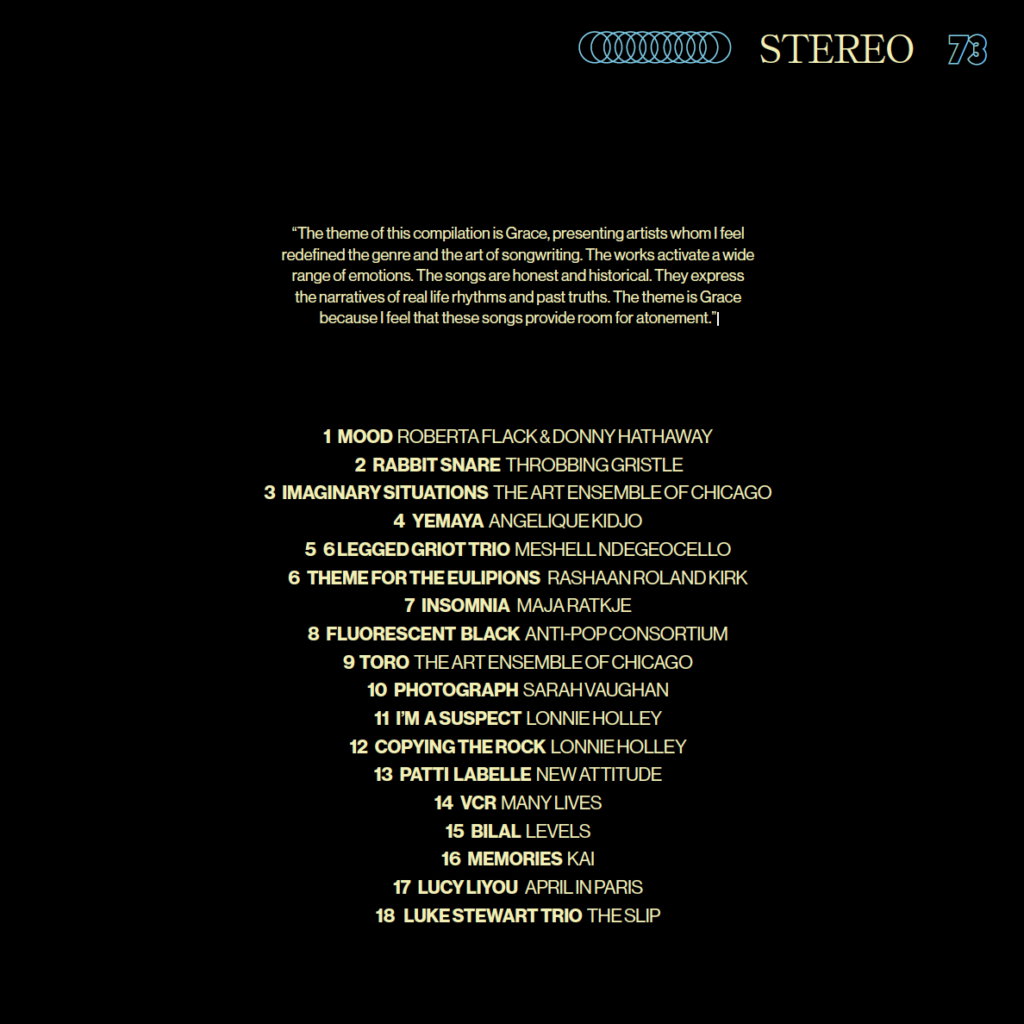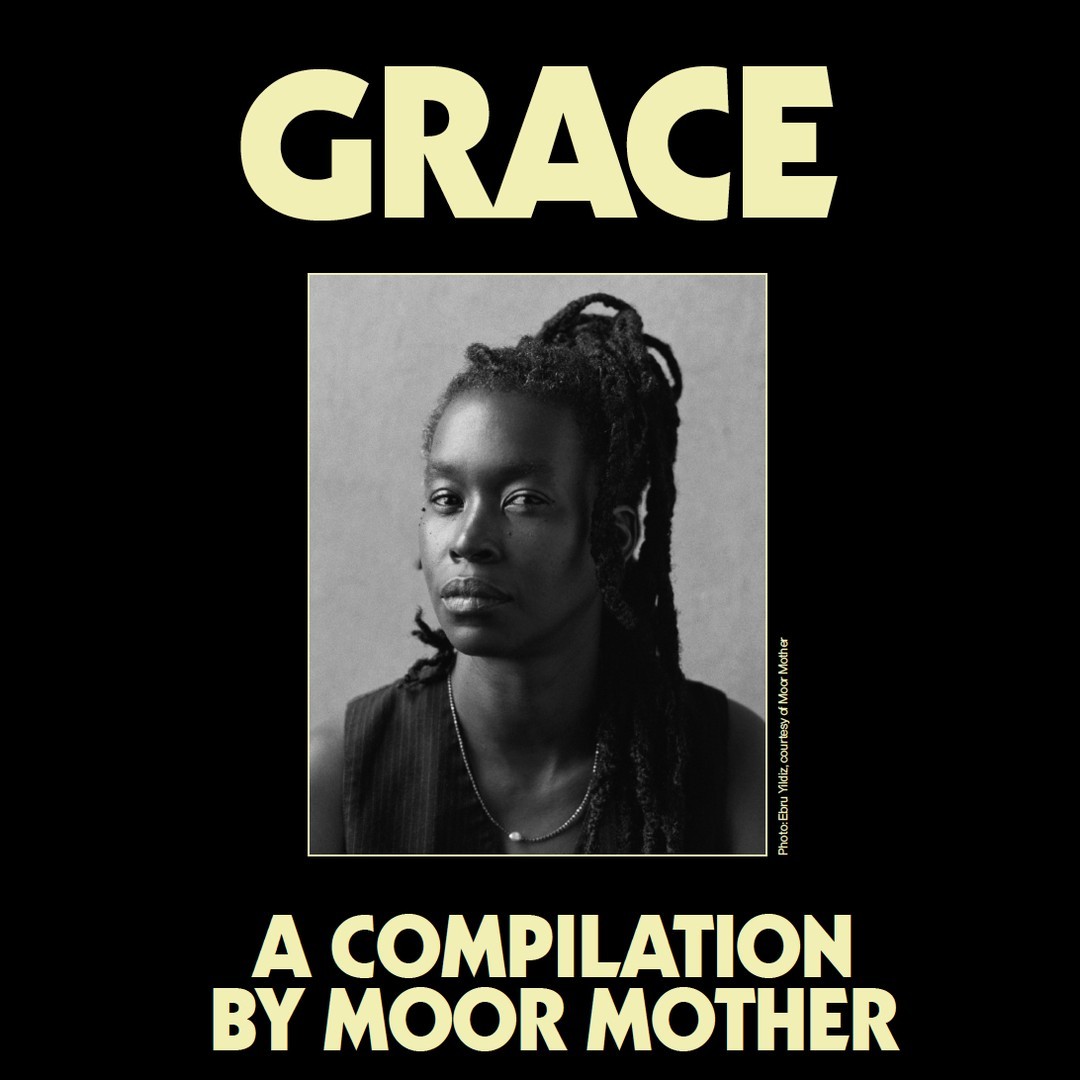Moor Mother doesn’t just reflect on history; she tears it from its roots, pulls it into the present, and forces the world to reckon with its ghosts. Dubbed “the poet laureate of the apocalypse” by Pitchfork, her sound is a chaotic swirl of industrial noise, free jazz, and so-called “witch rap,” that pulses with the knowledge that the past is never truly behind us. Rooted in the tradition of liberatory speculative art, and drawing on the radical imagination of Afrofuturism, the Philadelphia-based artist, otherwise known as Camae Aweya, makes music that feels both urgent and transcendent.
Aweya refers to free jazz as a “liberation technology”, and sees the synthesiser as the most freeing physical force in sound. “It is the noise of the planet.” On this hypothetical compilation, themed around grace, Ayewa opens up a space of reckoning that offers something more subtle, more reflective. For her, grace is a complex form of healing—a force that allows for acknowledging the weight of history while making space for restoration. The tracks she curates embody this duality, from the raw emotional honesty of Patti LaBelle to the cosmic, lived-in wisdom of Lonnie Holley, whose ‘Copying the Rock’ cuts deep. “The lyrics really speak to the history of music,” she says. “I love songs that feel like they’ve lived their own life, and you are merely a witness to a great truth.”
“The theme of this compilation is Grace, presenting artists whom I feel redefined the genre and the art of songwriting. The works activate a wide range of emotions. The songs are honest and historical. They express the narratives of real life rhythms and past truths. The theme is Grace because I feel that these songs provide room for atonement.”

Photo: Edu Yildiz courtesy of Moor Mother

